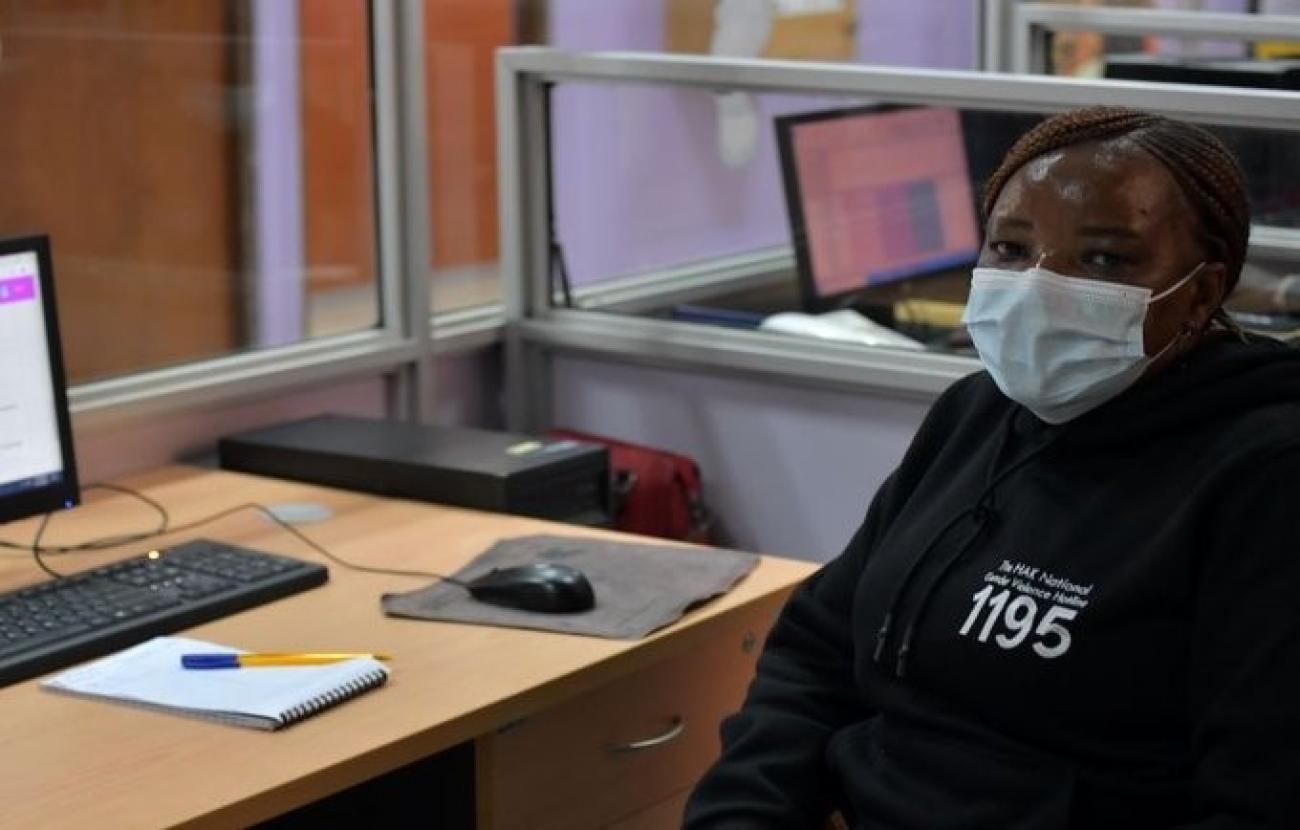Kenya’s GBV helpline HAK 1195: Leveraging on data to offer survivor-centered services

The pandemic really helped raise the national alarm on the safety of women and girls
With the announcement of Covid-19 containment measures such as national lockdowns and stay-at-home orders in early March 2020, a spike in calls received by the national helpline for gender-based violence was amongst the first signs that all was not well at home. By December 2020, the national toll-free helpline number HAK 1195 had recorded more than 6,000 calls from survivors seeking services, a 360% increase from cases recorded in 2019.
“The pandemic really helped raise the national alarm on the safety of women and girls,” says HAK 1195 lead tele-counselor, Jane*. “It also revealed the social and economic vulnerabilities that expose them to violence,” she added. Jane has worked at the helpline for the last seven years and is amongst a team of tele-counselors providing 24-hour services to survivors. They include psychosocial support and access to services such as healthcare, shelters, legal aid, police assistance, and emergency ambulance rescue.
Tele-counselor Peter* recalls having to dispatch an ambulance to a village in Elgeyo Marakwet County after receiving a distress call from a member of the public. “The caller reported that two young sisters had undergone FGM, and both were experiencing excessive bleeding. One of them had even fainted,” narrates Peter. He contacted the Kenya Red Cross Society who dispatched an ambulance to give medical first aid and transfer the girls to a local health facility for further care. Police provided security during the rescue operation. “The circumciser was arrested after further investigations by the area chief, and she will not be harming any other girl,” he says. The two sisters are currently residing in a safe house where they will receive support to continue with their education.
Tele-counselors answer calls at the HAK 1195 Helpline center in Nairobi. © UNFPA Kenya/ Irene Wangui
The 1195 helpline is operated by a local non-profit, Healthcare Assistance Kenya (HAK), in partnership with the Ministry of Public Service and Gender. UNFPA and UN Women provide technical and financial support, which has included raising public awareness on the helpline to enhance access to GBV services during the COVID-19 crisis. At the height of the pandemic, UNFPA supported HAK to upgrade the functional capacity of the helpline's database for improved data collection and use.
The new database captures information around a set of indicators designed to strengthen GBV response and prevention efforts by providing disaggregated data that informs planning. “The data collected helps us map the different types of GBV, including the most commonly reported, where they occur, and the most affected demographic,” says UNFPA GBV/Gender Advisor, Caroline Murgor. “This data is shared with the government and other partners within the GBV Technical Working Group and has helped in quantifying the problem and the design of policies and programs that are based on evidence.”
The pandemic really helped raise the national alarm on the safety of women and girls.
With an FGM prevalence of 21%, Kenya has committed to eliminating the practice by 2022, but trends in the helpline data show that FGM remains amongst the least reported forms of GBV. Healthcare Assistance Kenya Director, Ms. Fanis Lisiagali, attributes this to the culture of silence and secrecy surrounding the practice. “Looking at the data, we can be able to identify the areas where more advocacy and awareness is needed in order to empower women to speak up against FGM and all other forms of gender-based violence,” says Ms. Lisiagali.
Through the Joint Programme on Female Genital Mutilation/Cutting, UNFPA has supported various community dialogues and awareness campaigns carried out on community radio to sensitize the public on preventing and responding to FGM. More than 1 million people have been reached through such advocacy efforts with information on the helpline.
At the Generation Equality Forum held in Paris, France, President Uhuru Kenyatta committed to introducing a module on GBV in the 2022 Kenya Demographic Health Survey that will strengthen the utilization of gender statistics in informing the design and scale-up of FGM and GBV programming in line with the costed presidential implementation plan on ending FGM. “It is my personal commitment to end FGM in Kenya by the end of my tenure,” said President Kenyatta.
*Names have been changed to maintain confidentiality.




